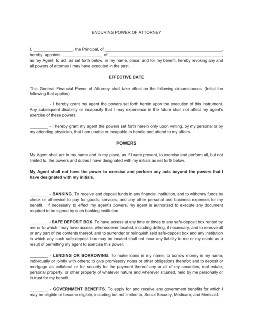- Eviction Notice Forms
- Power of Attorney Forms Forms
- Bill of Sale (Purchase Agreement) Forms
- Lease Agreement Forms
- Rental Application Forms
- Living Will Forms Forms
- Recommendation Letters Forms
- Resignation Letters Forms
- Release of Liability Agreement Forms
- Promissory Note Forms
- LLC Operating Agreement Forms
- Deed of Sale Forms
- Consent Form Forms
- Support Affidavit Forms
- Paternity Affidavit Forms
- Marital Affidavit Forms
- Financial Affidavit Forms
- Residential Affidavit Forms
- Affidavit of Identity Forms
- Affidavit of Title Forms
- Employment Affidavit Forms
- Affidavit of Loss Forms
- Gift Affidavit Forms
- Small Estate Affidavit Forms
- Service Affidavit Forms
- Heirship Affidavit Forms
- Survivorship Affidavit Forms
- Desistance Affidavit Forms
- Discrepancy Affidavit Forms
- Career Assessment - 16+ Examples, Format, Tips, Pdf Forms
- Undertaking Affidavit Forms
- General Affidavit Forms
- Affidavit of Death Forms
Enduring Power of Attorney
The security and welfare of our estate have always been a top priority for us. But what will happen to our estate if we become incapable of looking after them? We may be bound to lose all of them in a whiff, or we may try and continue to keep them. One legal and, therefore, a secure way of doing so is through writing an Enduring Power of Attorney. An enduring power of attorney allows us to ensure our estate’s welfare, in times of incapacity by legally assigning someone we trust to look after them. Read More
Enduring Power of Attorney
- What Is an Enduring Power of Attorney?
- How to Write an Enduring Power of Attorney
- Frequently Asked Questions
- What is the difference between a durable power of attorney and an enduring power of attorney?
- Who can I appoint as my agent in an enduring power of attorney?
- Is an enduring power of attorney similar to a springing durable power of attorney?
- What are powers granted by an enduring power of attorney?
- How many witnesses should I have for an enduring power of attorney?
What Is an Enduring Power of Attorney?
An enduring power of attorney is a type of instrument wherein a principal assigns some he or she trust as their agent. The principal’s agent will be primarily responsible for looking after and handling the principal’s estate during its incapacity. The agent will also be given the authority to decide on the principal’s medical and financial matters and can be revoked by the principal for any reason. Lastly, an enduring power of attorney also needs notarization for it to be legally valid.
How to Write an Enduring Power of Attorney
Executing an enduring power of attorney is usually done in anticipation of one’s inability to take care of its estate in the future. This allows for securing and maintaining our estate’s well being in times when we are unable to do so. This instrument lets you appoint someone to handle your estate on your, and listed in the steps below is how to write an enduring power of attorney.
1. Begin by Appoint an Agent
Appointing an agent is the first thing that you should do when writing an enduring power of attorney. You can begin by introducing yourself as the principal and appoint someone you trust as your agent. Selecting an agent ensures the security of your estate in the future, and do so by indicating their name and address.
2. Set the Conditions of When It Takes Effect
After appointing your agent, it’s time to set the conditions for when the enduring power of attorney takes effect. Such an instrument usually takes effect whenever the principal becomes incapacitated or when his physician determines, in writing, that he or she is no longer capable of making sound decisions. Clauses this step are already preset, and all you need to do is to fix your initials before them.
3. Indicate the Powers of the Agent
The next important step that you should complete is to indicate the powers that you’ll grant to your agent. These powers are usually related to managing your finances, properties, and even your health. For you to enumerate what your agent is allowed to do on your behalf, all you need to do is to put your initials before every power listed in the clause provided in the instrument.
4. Fix Your Signatures on the POA
Now that you have completed all the essentials of your enduring power of attorney, you and your agent can sign the instrument. Signing the enduring power of attorney indicates the legitimacy of the power that you grant your agent. It also shows that the agent accepts the responsibility to act on such on your behalf and to your best interest.
5. Have the POA Witnessed and Acknowledged
The last and final step in executing your enduring power of attorney is to have it witnessed and acknowledged. All you need to do is to visit your local notary office, have it notarized, and signed by witnesses. This will further give your ending power of attorney legitimacy, and let your agent legally carry out the authority you granted on the public record.
Frequently Asked Questions
What is the difference between a durable power of attorney and an enduring power of attorney?
A durable power of attorney and an enduring power of attorney is similar. Both of them are executed in anticipation of the principal’s future incapacity, both also take effect upon signing and execution, and is not affected or revoked if the principal becomes incapacitated. The only difference between these similar instruments is that Americans commonly use a durable power of attorney while British Commonwealth countries use the latter.
Who can I appoint as my agent in an enduring power of attorney?
You can appoint anyone you trust the most as your agent in an enduring power of attorney. They can be your friends, family members, relatives, or anyone competent enough for the role. An enduring power of attorney doesn’t extinguish if you become incapacitated. So make sure that the person that you appoint as your agent only acts to your best interest.
Is an enduring power of attorney similar to a springing durable power of attorney?
While both these instruments stay valid in the event of a principal’s incapacity, they differ in terms of when each instrument takes effect. A springing durable power of attorney usually “springs” into effect only in the event the principal becomes incapacitated. An enduring power of attorney, on the other hand, takes effect immediately after the instrument has been signed and executed.
What are powers granted by an enduring power of attorney?
An enduring power of attorney grants an agent the authority to act, decide, and participate on important matters on behalf and of the best interest of the principal. These powers are listed as follows.
- Banking
- Lending/Borrowing
- Safe Deposit Box
- Government Benefits
- Retirement Plans
- Taxes
- Legal Advice and Proceedings
- Real Estate
- Personal Property
- Gifts
- Insurance
- Health Care
- HIPAA
How many witnesses should I have for an enduring power of attorney?
Typically, an enduring power of attorney only needs to be witnessed by at least two people. But, this may vary depending on your state’s requirements and regulations on executing a power of attorney. Be sure to check on them just to be sure.
People would usually go to great lengths to protect their wealth. But, we may not be able to do that in the future as age and time take its toll on us. The only way to protect and secure the well being of our estate is to appoint someone to handle them on our behalf. And by executing an enduring power of attorney, we not only ensure the survival of our estate but also secure our interests as well.

